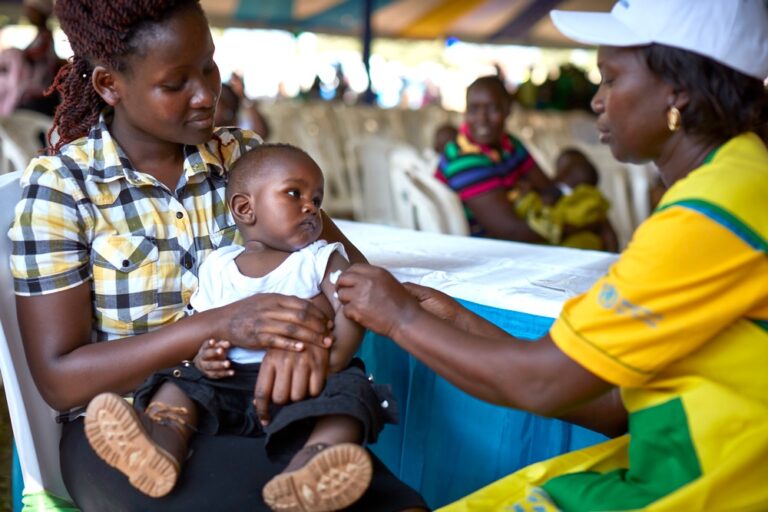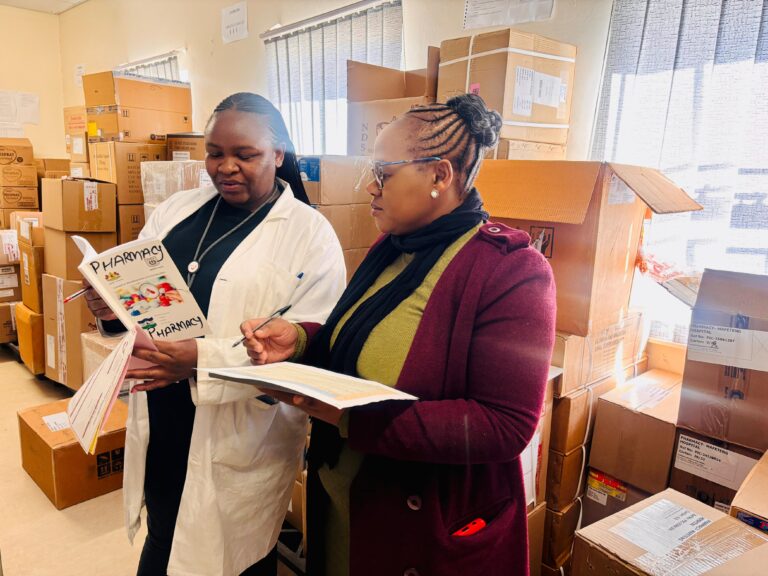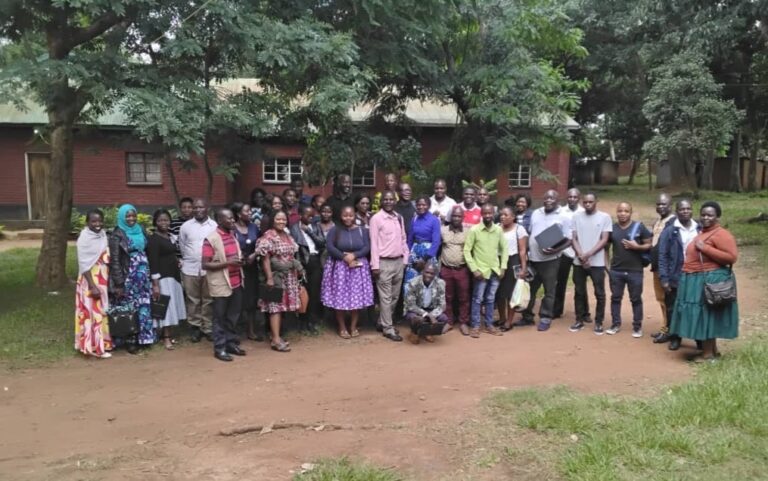October 2025 – Lusaka, Zambia — Bridge the Gap (BTG) has released a new White Paper for Zambia: Bridging the Gap in Zambia’s Malaria Response, a country-level analysis revealing urgent funding shortfalls that threaten to reverse years of progress against one of Zambia’s deadliest diseases.
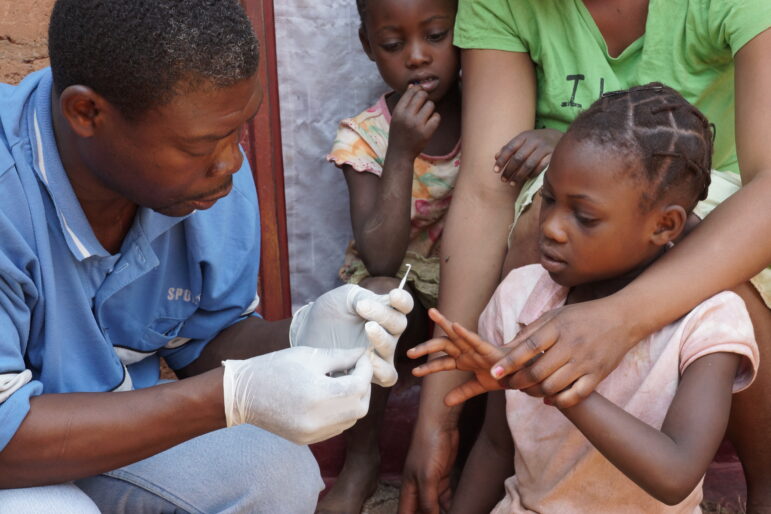
Despite strong leadership by the Government of the Republic of Zambia and remarkable progress in malaria control, the country now stands at a critical crossroads. More than 8.5 million malaria cases and 1,060 deaths were reported in 2024, with rural provinces such as Luapula, Northern, and Muchinga still carrying the highest burden. Zambia’s success—built on decades of partnership, innovation, and community mobilization—is now at risk as international funding contracts and health system challenges mount.
A Shrinking Resource Landscape
For years, Zambia’s malaria response has been anchored by robust partnerships between the Ministry of Health, the National Malaria Elimination Centre (NMEC), the U.S. President’s Malaria Initiative (PMI), and the Global Fund to Fight AIDS, Tuberculosis and Malaria (GF). However, recent budget reductions from PMI—and reallocation pressures within the Global Fund portfolio—are creating substantial financing gaps across critical interventions.
These shortfalls are especially acute in entomological monitoring, social and behavior change communication, routine surveillance, and case management. The Bridge the Gap analysis, maps these gaps in detail through the Zambia Malaria Gaps Inventory and highlights where immediate investment could prevent the loss of hard-won gains.
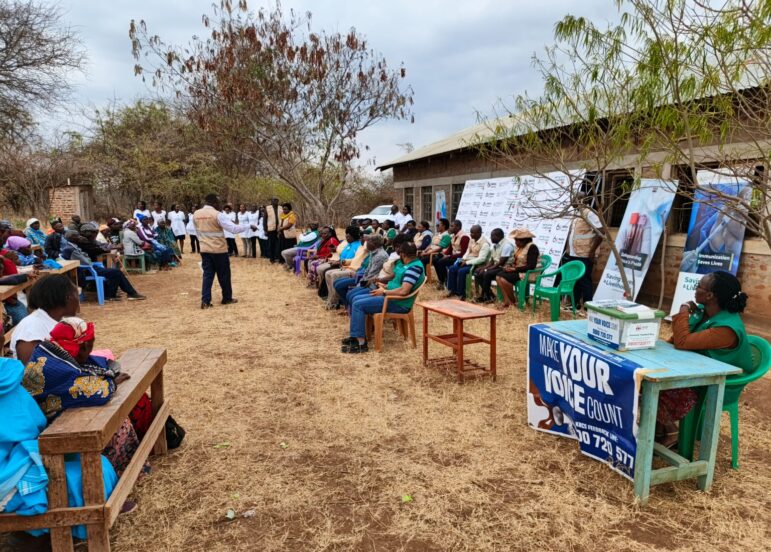
Key Areas of Concern
The White Paper identifies several urgent priorities requiring additional support in 2025–2026:
- Social and Behavior Change (SBC): The complete cancellation of PMI-funded SBC activities threatens community engagement and awareness—cornerstones of malaria prevention.
- Insecticide-Treated Net (ITN) Campaigns: Under-funding of the 2026 ITN mass campaign risks disrupting one of Zambia’s most successful prevention tools, potentially leaving millions unprotected.
- Case Management and Community Health Workers: Reduced implementation budgets are weakening frontline service delivery. CHWs, who form the backbone of malaria case management, need renewed investment in training, supervision, and equipment.
- Surveillance and Monitoring: Cuts to monitoring and evaluation activities jeopardize Zambia’s ability to detect drug and insecticide resistance or emerging threats such as Anopheles stephensi.
- Supply Chain Strengthening: Without operational support for warehousing and last-mile delivery, stockouts of life-saving medicines and tests could become more frequent.
The combined effect of these gaps could stall or even reverse Zambia’s trajectory toward malaria elimination. Without urgent intervention, vulnerable populations—particularly children and pregnant women in high-burden provinces—could face increased risk of infection and death.
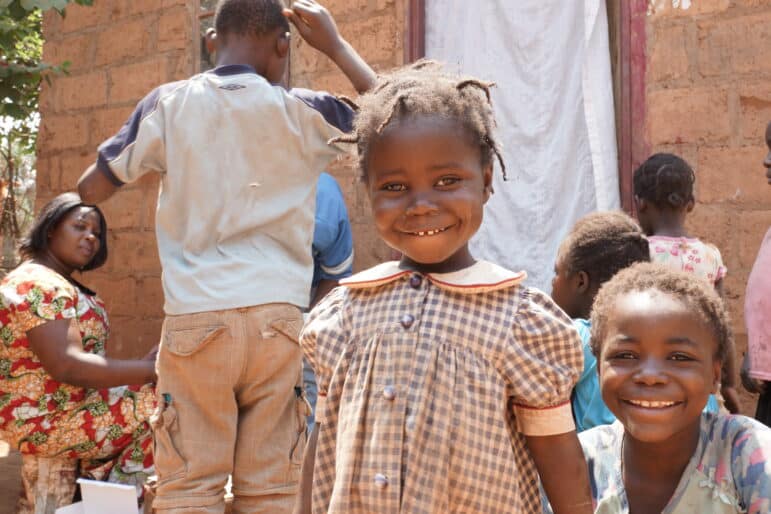
A Call to Action
The Bridge the Gap initiative was launched in early 2025 by Akros and Population Explorer in response to funding withdrawals — to identify where funding gaps endanger progress, and to mobilize new partners to act. In Zambia, BTG’s work with NMEC and other partners has produced a detailed financing map that not only identifies needs but also aligns them with opportunities for donor and private sector engagement towards sustainable malaria funding.
“Sustaining Zambia’s malaria gains is both a public health and a development imperative,” said Dr. Peter Mumba, Executive Director of Bridge the Gap. “Closing immediate gaps will prevent avoidable deaths and maintain momentum, while longer-term investments will strengthen the systems that keep malaria under control.”
The White Paper emphasizes that protecting Zambia’s progress is more than an act of humanitarian support—it is a strategic investment in national resilience, equity, and economic stability. Every dollar invested now helps prevent resurgence and safeguards a generation of children from preventable illness and death.
Looking Ahead
The Zambia White Paper is now available for public download. Bridge the Gap calls upon governments, donors, philanthropies, and the private sector to join in closing the financing gaps that threaten Zambia’s malaria fight.
“The need is great, the chance to save lives is compelling, and the opportunities to build resilient systems are tremendous,” said Dr. Anna Winters, BTG Executive Leadership Team member and CEO of Akros. “This White Paper is a roadmap for partnership—one that can ensure Zambia’s progress doesn’t just continue, but accelerates.”
Bridge the Gap is applying this same approach in other high-burden countries—including Tanzania, Ghana, Ethiopia, Nigeria, and the Democratic Republic of Congo—working with national malaria programs to rapidly identify funding shortfalls, align partners, and mobilize targeted investments that sustain life-saving interventions.
Download the full report: HERE
Download the summary report: HERE

